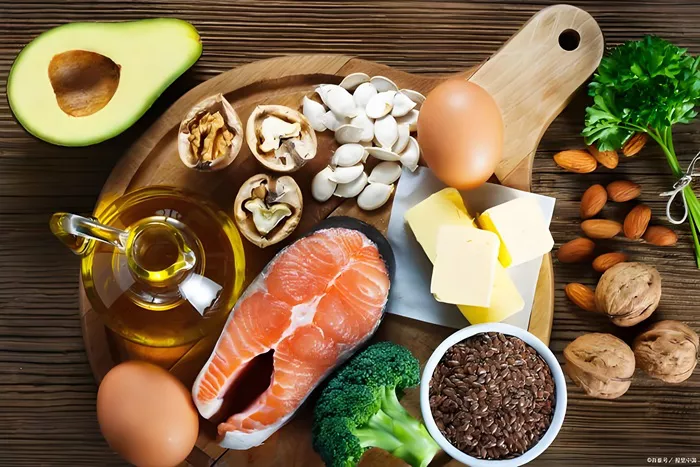Skin health is not just about topical treatments and cosmetics; it’s also significantly influenced by what we eat. A well-balanced diet can provide the nutrients necessary for maintaining healthy, vibrant skin. This article will explore the importance of nutrition for skin health, the specific nutrients that contribute to skin vitality, and the foods that should be included in a skin-friendly diet.
The Impact of Nutrition on Skin Health
The skin is the largest organ of the human body and serves as a mirror to our overall health. What we consume affects not only our physical well-being but also the appearance and health of our skin. Nutrients play a crucial role in skin health, as they contribute to:
Cell Growth and Repair: Providing the building blocks for new skin cells and aiding in the repair of damaged skin.
Antioxidant Protection: Combating free radicals that can cause skin damage and premature aging.
Hydration: Keeping the skin moisturized and supple.
Inflammation Regulation: Helping to reduce inflammation, which can contribute to conditions like acne and eczema.
Nutrients Essential for Skin Health
Certain nutrients are particularly important for maintaining healthy skin:
Protein: Essential for the structure and repair of skin tissues.
Omega-3 Fatty Acids: Support skin hydration and have anti-inflammatory properties.
Vitamin C: Acts as an antioxidant and is necessary for collagen production.
Vitamin E: Protects the skin from oxidative stress and supports skin health.
Zinc: Involved in skin cell division and repair.
Vitamin A: Supports the growth and repair of skin cells.
Hydration: Maintains skin elasticity and helps prevent dryness.
Foods for Skin Health
Incorporating the following foods into your diet can provide the necessary nutrients for healthy skin:
Lean Proteins: Fish, chicken, turkey, and plant-based proteins like lentils and tofu.
Omega-3 Rich Foods: Fatty fish like salmon, mackerel, and sardines, as well as walnuts and flaxseeds.
Citrus Fruits: Oranges, grapefruits, and berries, which are high in vitamin C.
Nuts and Seeds: Almonds, sunflower seeds, and pumpkin seeds for vitamin E and healthy fats.
Leafy Greens: Spinach, kale, and collard greens for vitamins A and C.
Sweet Potatoes: Rich in beta-carotene, which converts to vitamin A in the body.
Hydration: Drinking plenty of water helps maintain skin hydration.
A Sample Skin-Friendly Meal Plan
Here’s an example of a daily meal plan that supports skin health:
Breakfast:
- A smoothie with spinach, banana, flaxseeds, and a scoop of protein powder.
Mid-Morning Snack:
- A handful of almonds and a piece of fruit, such as an orange.
Lunch:
- A salad with mixed greens, grilled chicken, avocado, and a dressing made with olive oil and lemon juice.
Afternoon Snack:
- A small bowl of berries or a piece of fruit with a side of yogurt.
Dinner:
- Baked salmon with a side of roasted sweet potatoes and steamed broccoli.
Evening Snack:
- A small bowl of mixed nuts and a glass of water.
Hydration:
- Aim for at least 8 cups of fluids throughout the day, including water, herbal tea, and decaffeinated beverages.
The Importance of a Balanced Diet for Skin Health
A balanced diet that includes a variety of fruits, vegetables, whole grains, lean proteins, and healthy fats provides the necessary nutrients for skin health. It’s important to consume a diverse range of foods to ensure you’re getting all the vitamins, minerals, and macronutrients your skin needs to thrive.
Lifestyle Factors That Support Skin Health
In addition to a nutrient-rich diet, other lifestyle factors can support skin health:
Sun Protection: Wear sunscreen with a high SPF to protect the skin from harmful UV rays.
Avoid Smoking: Smoking can accelerate skin aging and damage skin elasticity.
Regular Exercise: Physical activity improves circulation, which benefits skin health.
Adequate Sleep: Ensure you get enough sleep to support skin repair and regeneration.
Stress Management: Reduce stress through relaxation techniques, as stress can negatively impact skin health.
The Role of Gut Health in Skin Health
The gut-skin axis is a growing area of research that suggests a link between the health of your gut microbiome and the appearance of your skin. A healthy gut can support skin health by:
Promoting a Diverse Microbiome: Encouraging a diverse gut microbiome with probiotic-rich foods like yogurt, kimchi, and other fermented foods.
Reducing Inflammation: A healthy gut can help reduce systemic inflammation, which can contribute to skin conditions like acne and eczema.
Supporting Nutrient Absorption: A well-functioning gut is essential for absorbing the nutrients necessary for skin health.
Lifestyle Factors That Contribute to Skin Health
In addition to diet, several lifestyle factors can impact skin health:
Avoid Smoking: Smoking can accelerate skin aging by reducing blood flow to the skin and breaking down collagen.
Manage Stress: Chronic stress can lead to increased cortisol levels, which can negatively impact skin health.
Get Enough Sleep: Adequate sleep is essential for skin repair and regeneration.
Exercise Regularly: Physical activity improves circulation, which helps deliver nutrients to the skin and remove waste products.
Conclusion
A good diet is crucial for maintaining skin health. By consuming a variety of nutrient-dense foods and adopting a healthy lifestyle, you can support your skin’s natural beauty and vitality. Always consult with a healthcare professional or a registered dietitian for personalized advice and recommendations based on your specific needs and circumstances.
Related Topics:

